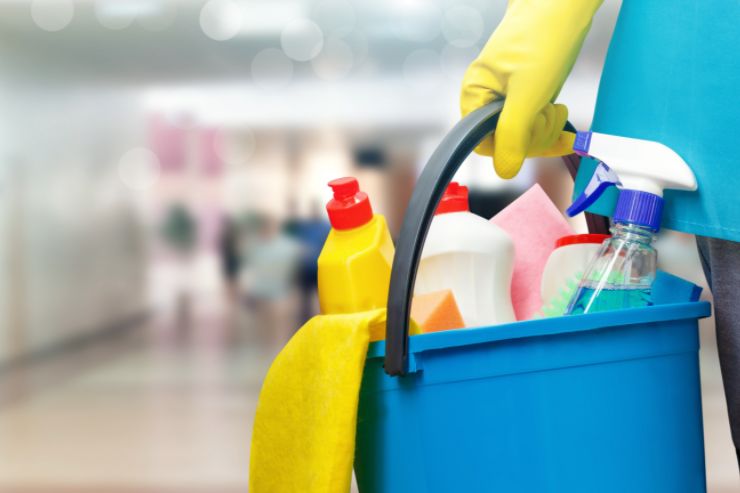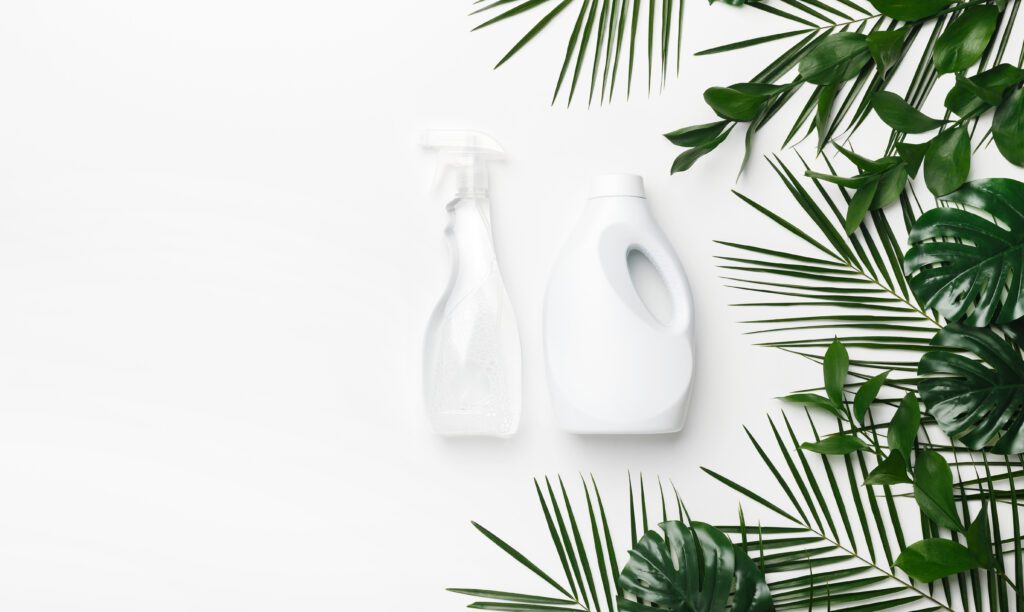Are Microbial Cleaning Products Better for the Environment?

Learn the benefits of a microbial cleaner & how they make a positive impact on the environment. Over the last several years, Microbe-based Cleaning Products (MBCPs) have been passionately debated. There are a wide range of cleaning products MBCPs available, including:
- Multipurpose cleaners
- Drain treatments and cleaners
- Wastewater treatments
- Septic tank treatments
- Malodor neutralizers
- Grease trap and interceptor treatments
When dealing with general-purpose cleaners, such as multi-surface cleaners, the base cleaning chemicals are responsible for most elements of cleaning, sanitization & deodorizing. Organic components are often responsible for breaking down organic residues that cannot be reached readily with cleaning implements or by large droplets of cleaning chemicals.
What are Microbial Products?
Microbial cleaning products don’t work the same way that industrial chemicals do. Not to be confused with antimicrobial cleaners, these solutions are chock full of beneficial microbes. Probiotics & spore-state bacteria serve to break down organic compounds that reside on surfaces that we commonly clean.
Microbial cleaners are widely used by cleaning professionals because they are highly effective, safe for use by humans, and far, far more environmentally friendly than many alternatives. Metabolically inactive bacterial spores comprise one of the most common forms of microbial cleaners. When sprayed, they begin breaking down oils, greases, and other organic components that are present on surfaces such as floors, pipes, and tables.
Industrial cleaning companies need to sanitize & clean solid surfaces, such as pipes, cooking surfaces & implement septic treatments.
Some cleaning products contain microorganisms as active ingredients, such as lactobacillus. This is a common lactic acid bacteria (LAB) that is used to disinfect organic surfaces humanely during livestock working.
The Benefits of Microbial Products
Microbial cleaning products are largely considered safer for the environment than traditional cleaning agents. Further, microorganisms are often able to penetrate surfaces with smaller crevices than the industrial alternatives. One of the most fascinating benefits of MBCPs is their ability to continue cleaning after the initial cleaning agent has evaporated away.
Degrade at Faster Rates
Microbial cleaning agents often use bacteria such as saccharomyces cerevisiae—a form of yeast—to consume organic components and accelerate cleaning speeds. Commercial cleaning companies prefer these cleaners because they improve the efficiency of cleaning staff in customer sites.
MBCPs are generally considered better for aquatic life
Bacteria-based and other MBCPs are less harmful to aquatic ecosystems than many of the cleaning alternatives. This has been tested when attempting to use bioaugmentation to resolve large-scale oceanic oil spills. Not every attempt has successfully secured an evolutionary foothold in the environment. Some successful examples have been demonstrated—albeit the causes of success were not clearly verified.
Traditional cleaning products take too long to degrade
Historically, cleaning solutions can take months or years (sometimes far longer) to break down in the wild. The result of long-term exposure to these solvents & cleaners has proven destructive to aquatic wildlife.

Eliminates Hazardous Solvents
Microbe-based cleaning products rarely use harmful or hazardous solvents. They rely on microorganisms to carry out the process of dissolving undesirable matter from surfaces.
Old cleaning solutions tend to use hazardous compounds such as sodium hypochlorite (chlorinated bleach) and sodium hydroxide (drain cleaner, also known as “Lye”). Both of these chemicals alter the pH of anything that they come into contact with, meaning that they can be incredibly harmful to the environment.
Over the last several decades, it has become clear that using cleaners such as bleach and lye can harm not only the environment, but humans as well. More than 2,200 accidental exposures to chlorine gas happened in 2017, due to mixing bleach and acid, according to the American Association of Poison Control Centers.
Improving the Environment with Green Cleaning
Green cleaning has taken off in recent times. Tangible certifications, such as LEED Green certification and focus groups intended to optimize for green cleaning options have emerged. Pritchard is Green Seal certified and our technicians employ the most up-to-date green cleaning standards available.

